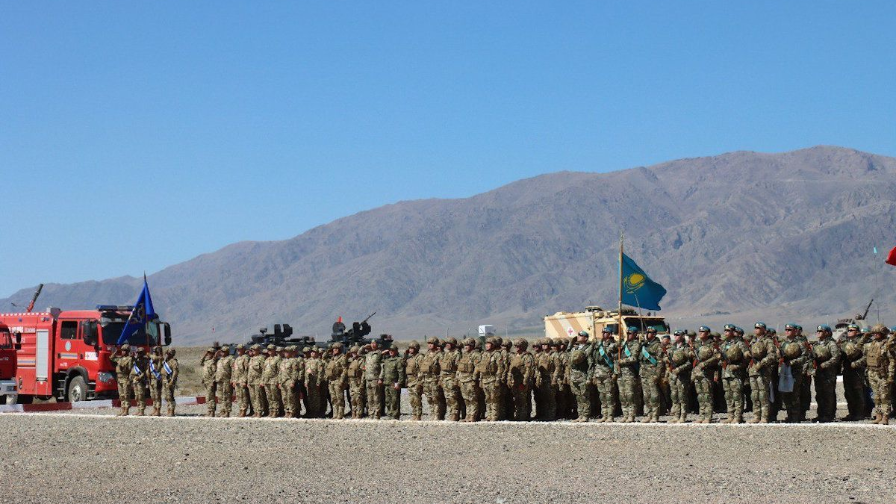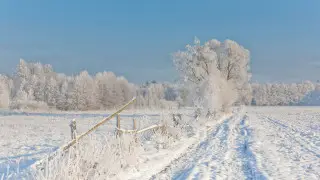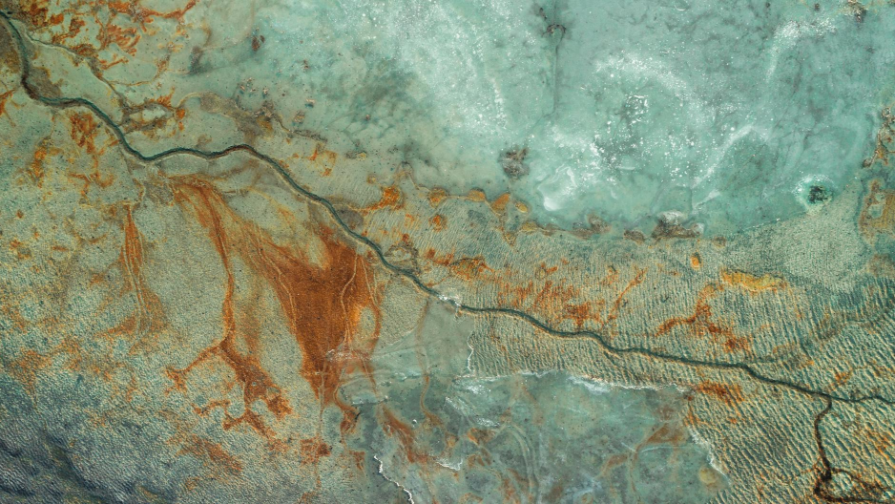"Júregim taýda meniń" ádebı kesh
MY HEART’S IN THE HIGHLANDS
Ádebı keshtiń maqsaty: Oqýshylarǵa R. Bernstiń ómirin, shyǵarmalaryn jáne onyń qazaq jáne orys tilderindegi aýdarmalaryn tanystyrý. S. Marshak jáne S. Máýlenov aýdarmalarynyń túpnusqamen tutastyǵyna kóńil aýdartý.
Poezıaǵa, aýdarmaǵa kóńil aýdartý, ádebıetke qyzyǵýshylyqtaryn oıatý.
Kórnekilikteri: R. Berns, S. Máýlenov, S. Marshak portretteri
Pánaralyq baılanys: qazaq ádebıeti, orys ádebıeti
Ádebı keshtiń barysy:
Dear students and teachers! Today we have a literature party devoted to R. Burns’ poetry. We speak about his life, his creation and we will recite his poems in three languages.
The theme of our literature party is “My heart’s in the Highlands”.
Pupil 1. R. Burns, a well – known and popular Scottish poet, was born on January, 25, 1759 in Scotland. He was born in a poor family of a farmer. There were 7 children in the family and Robert was the eldest. His father knew the value of a good education and he tried to give his children the best education.
Pupil 2. Robert was sent to school at the age of 6, but his father couldn’t pay for his education. Then Robert’s father invited a young teacher to teach the boys. The teacher taught him to speak English correctly and to recite poems expressively.
Pupil 3. His mother had a beautiful voice and often sang songs and told many folk tales to her children. Robert liked reading books. His favorite writer was W. Shakespeare. R. Burns began to write poems when he was 15. He published some of his poems in 1786 and he became popular.
Pupil 4. Zamechatelnyı poet ı velıkolepnyı master perevoda S. Marshak rodılsá v Voroneje. V samom nachale 1912 g. S. Marshak zarýchılsá soglasıem neskolkıh redaktorov gazet ı jýrnalov pechatat ego korrespondensıı ı ýehal v Anglıý. On postýpıl v Londonskıı ýnıversıtet, ızýchal anglııskıı ıazyk ı ıstorıý lıteratýry. Perevody anglııskoı klassıcheskoı poezıı zanımaıýt znachıtelnoe mesto v tvorchestve S. Marshaka. On perevel detskıe pesenkı, poezıý Ý. Shekspıra, R. Bernsa ı drýgıh ızvestnyh avtorov.
Pupil 5. S. Máýlenov – aqyn, jazýshy jáne álem ádebıeti klasıkteriniń eńbekterin qazaq tiline aýdarǵan aýdarmashy. S. Máýlenov 1922 jyly 17 – qyrkúıekte Qostanaı oblysy, Jangeldi aýdany, Torǵaı aýylynda dúnıege kelgen. R. Berns shyǵarmalaryn S. Marshak orys tiline aýdarsa, S. Máýlenov qazaq tiline aýdaryp, poezıa súıgish qaýymǵa jetkizdi. S. Máýlenov «R. Berns óleńderi azat eńbekti, beıbit ómirdi, asqaq adamgershilikti súıetin jandardyń barlyǵyna ortaq qazyna. Olaı bolsa, bul qazyna qazaq oqyrmandaryna da jat bolmasa kerek», - deı otyryp R. Bernstiń 20 – ǵa jýyq óleńderin aýdardy. Sonyń biri «Ákem adal fermer edi».
«Ákem adal fermer edi»
Baı bolǵan joq shyǵyp aty.
Tastap ketken ónegeli,
Kóp urpaqqa ulaǵaty.
Meıli tıynsyz jarly bolsa,
Dedi, - ol qunyn bilgen jaqsy,
Ar – uıattan aırylǵansha,
Alba – julba júrgen jaqsy.
Endáýletke júzipı shalqyp,
Erke bolyp jaralǵandar.
Oıla senen júz ese artyq,
Qarapaıym adal jandar.
Pupil 6. R. Burns organized a society of young people. They discussed moral, social and political problems of that time. His sympathy for the Great French Revolution is well known. His poem “The tree of Liberty” is very popular.
Pupil 7. The tree of Liberty
Heard ye o’ the tree o’ France,
I watna what’s the name o’t;
Around the tree the patriots dance,
Weel Europe kens the fame o’t.
It stands where ance the Bastile stood,
A prison built by kings, man,
When Superstition’s hellish brood
Kept France in leading – strings, man.
Pupil 8. Derevo Svobody
Estderevo v Parıje, brat,
Pod sen ego gýstýıý
Drýzá otechestva speshat,
Pobedý torjestvýıa.
Gde nynche ý ego stvola
Svobodnyı lúd tolpıtsá
Vchera Bastılıa byla,
Vseı Fransıı temnısa.
Pupil 9. Azattyq aǵashy
Parıjde bir aǵash bar, týysqanym,
Meıirimdi sonyń nýly saıasynda,
Toılaýǵa eldiń jeńis, yrys baǵyn,
Dostardyń quıylady bári asyǵa.
Saıasy pana jurtqa qonatuǵyn,
Árýaq aıalaıdy qalap kisi,
Keshe ol Bastıllıa bolatuǵyn,
Kúlli Fransıa abaqtysy.
Ádebı keshtiń maqsaty: Oqýshylarǵa R. Bernstiń ómirin, shyǵarmalaryn jáne onyń qazaq jáne orys tilderindegi aýdarmalaryn tanystyrý. S. Marshak jáne S. Máýlenov aýdarmalarynyń túpnusqamen tutastyǵyna kóńil aýdartý.
Poezıaǵa, aýdarmaǵa kóńil aýdartý, ádebıetke qyzyǵýshylyqtaryn oıatý.
Kórnekilikteri: R. Berns, S. Máýlenov, S. Marshak portretteri
Pánaralyq baılanys: qazaq ádebıeti, orys ádebıeti
Ádebı keshtiń barysy:
Dear students and teachers! Today we have a literature party devoted to R. Burns’ poetry. We speak about his life, his creation and we will recite his poems in three languages.
The theme of our literature party is “My heart’s in the Highlands”.
Pupil 1. R. Burns, a well – known and popular Scottish poet, was born on January, 25, 1759 in Scotland. He was born in a poor family of a farmer. There were 7 children in the family and Robert was the eldest. His father knew the value of a good education and he tried to give his children the best education.
Pupil 2. Robert was sent to school at the age of 6, but his father couldn’t pay for his education. Then Robert’s father invited a young teacher to teach the boys. The teacher taught him to speak English correctly and to recite poems expressively.
Pupil 3. His mother had a beautiful voice and often sang songs and told many folk tales to her children. Robert liked reading books. His favorite writer was W. Shakespeare. R. Burns began to write poems when he was 15. He published some of his poems in 1786 and he became popular.
Pupil 4. Zamechatelnyı poet ı velıkolepnyı master perevoda S. Marshak rodılsá v Voroneje. V samom nachale 1912 g. S. Marshak zarýchılsá soglasıem neskolkıh redaktorov gazet ı jýrnalov pechatat ego korrespondensıı ı ýehal v Anglıý. On postýpıl v Londonskıı ýnıversıtet, ızýchal anglııskıı ıazyk ı ıstorıý lıteratýry. Perevody anglııskoı klassıcheskoı poezıı zanımaıýt znachıtelnoe mesto v tvorchestve S. Marshaka. On perevel detskıe pesenkı, poezıý Ý. Shekspıra, R. Bernsa ı drýgıh ızvestnyh avtorov.
Pupil 5. S. Máýlenov – aqyn, jazýshy jáne álem ádebıeti klasıkteriniń eńbekterin qazaq tiline aýdarǵan aýdarmashy. S. Máýlenov 1922 jyly 17 – qyrkúıekte Qostanaı oblysy, Jangeldi aýdany, Torǵaı aýylynda dúnıege kelgen. R. Berns shyǵarmalaryn S. Marshak orys tiline aýdarsa, S. Máýlenov qazaq tiline aýdaryp, poezıa súıgish qaýymǵa jetkizdi. S. Máýlenov «R. Berns óleńderi azat eńbekti, beıbit ómirdi, asqaq adamgershilikti súıetin jandardyń barlyǵyna ortaq qazyna. Olaı bolsa, bul qazyna qazaq oqyrmandaryna da jat bolmasa kerek», - deı otyryp R. Bernstiń 20 – ǵa jýyq óleńderin aýdardy. Sonyń biri «Ákem adal fermer edi».
«Ákem adal fermer edi»
Baı bolǵan joq shyǵyp aty.
Tastap ketken ónegeli,
Kóp urpaqqa ulaǵaty.
Meıli tıynsyz jarly bolsa,
Dedi, - ol qunyn bilgen jaqsy,
Ar – uıattan aırylǵansha,
Alba – julba júrgen jaqsy.
Endáýletke júzipı shalqyp,
Erke bolyp jaralǵandar.
Oıla senen júz ese artyq,
Qarapaıym adal jandar.
Pupil 6. R. Burns organized a society of young people. They discussed moral, social and political problems of that time. His sympathy for the Great French Revolution is well known. His poem “The tree of Liberty” is very popular.
Pupil 7. The tree of Liberty
Heard ye o’ the tree o’ France,
I watna what’s the name o’t;
Around the tree the patriots dance,
Weel Europe kens the fame o’t.
It stands where ance the Bastile stood,
A prison built by kings, man,
When Superstition’s hellish brood
Kept France in leading – strings, man.
Pupil 8. Derevo Svobody
Estderevo v Parıje, brat,
Pod sen ego gýstýıý
Drýzá otechestva speshat,
Pobedý torjestvýıa.
Gde nynche ý ego stvola
Svobodnyı lúd tolpıtsá
Vchera Bastılıa byla,
Vseı Fransıı temnısa.
Pupil 9. Azattyq aǵashy
Parıjde bir aǵash bar, týysqanym,
Meıirimdi sonyń nýly saıasynda,
Toılaýǵa eldiń jeńis, yrys baǵyn,
Dostardyń quıylady bári asyǵa.
Saıasy pana jurtqa qonatuǵyn,
Árýaq aıalaıdy qalap kisi,
Keshe ol Bastıllıa bolatuǵyn,
Kúlli Fransıa abaqtysy.
Nazar aýdaryńyz! Jasyryn mátindi kórý úshin sizge saıtqa tirkelý qajet.















